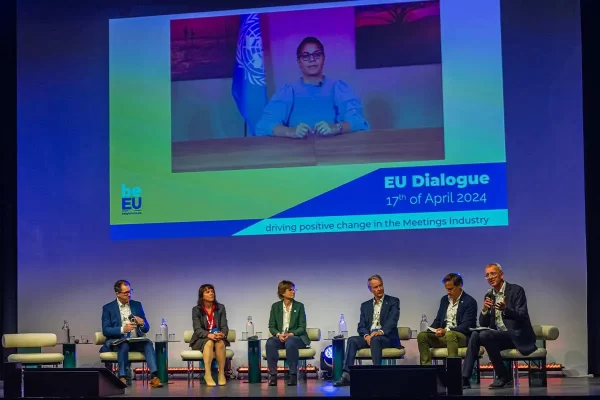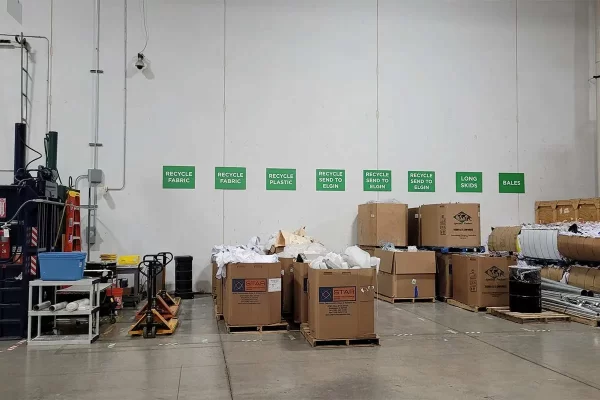Cape Town International Convention Centre (CTICC) in South Africa hosted its Annual Financial Results Press Conference on Oct. 21. The venue’s new CEO Julie-May Ellingson highlighted the 2013-2014 financial year and other developments.
CTICC extends its commitment to empower communities and preserve the planet
Ellingson said that one of CTICC’s core objectives is contributing to a self-sustaining economy through extending its reach by empowering and uplifting the communities within which it operates.
“Social sustainability principles are embedded in the way we operate and measure performance. We proactively encourage our staff, clients and stakeholders to participate in community programs,” she added.
CTICC partnered with Ambalimi Bezekhaya, the Foundation for Alcohol Related Research (FARR), the Haven Night Shelter and the Mitchells Plain School of Skills on various empowerment and skills initiatives. To facilitate skills development, CTICC partnered with the Mitchells Plain and Khayelitsha School of Skills on a Career Youth Day workshop, where students were mentored by CTICC staff and afforded the opportunity to gain valuable workplace skills.
In commemoration of Nelson Mandela Day, staff and suppliers volunteered their time to serve community projects throughout the Western Cape. The Haven Night Shelter in the city received 100 “Care Pack” donations while the FARR was the recipient of a toy collection drive. Staff lent a helping hand at the Abalimi Bezekhaya, Harvest of Hope project and the Joe Slovo informal settlement in Khayelitsha, where they assisted in harvesting fresh produce for retail consumption and various beautification projects.
Reducing CTICC’s environmental footprint is a strategic imperative for the organization and in the financial year significant targets were reached in terms of energy, water and waste minimization.
“Due to ongoing awareness campaigns and energy management initiatives, such as retrofitting and lighting conversions, the CTICC reduced its energy consumption per delegate over a three-year period by 17.3 percent,” said Ellingson.
Investment into water efficient technology and infrastructure translated into a water reduction saving of 43 percent per delegate from 2011 – 2014. Innovative waste minimization initiatives such as the implementation of a Waste Champions Team, comprised of staff and service providers yielded tangible results. 85 percent of the CTICC’s waste was recycled, reducing the proportion of waste sent to landfill.
CTICC produced its 2nd Integrated Annual Report, which is aligned to the Global Reporting Initiative (GRI) framework and ascribes to the principles of the United Nations Global Compact.
CTICC contributes to the knowledge economy and business tourism
Ellingson also explained CTICC played an instrumental role in advancing the meetings and events industry and promoting business tourism in the region.
CTICC exceeded all its key performance targets for the year in review and hosted 535 events against an event target of 500.
Thirty-three international conferences across a broad spectrum of sectors related to agro processing, the green economy, ICT, property, mining and medical were hosted at the CTICC. These are sectors that are aligned to the City of Cape Town’s and Western Cape Government’s economic growth strategies. A few large scale events hosted include the International Food and Agribusiness Management Association Congress, World Green Building Council Congress, Gartner Symposium/ITxpo, Investing in African Mining Indaba and the 8th World Congress of the World Society for Paediatric Infectious Diseases.
The ability of the CTICC and Cape Town to secure major international conferences is a significant component of its success. Twenty bids have been secured up until the year 2020 during the year under review.
Event highlights include the International Renewable Energy Conference in 2015 and the 17th World Congress of Psychiatry in 2016, which is expected to attract 5000 and 3000 delegates respectively. The Annual Meeting of the World Aquaculture Society in 2017 will see over 4000 delegates converge on Cape Town. In 2018 the CTICC will host the International Congress of Linguists and the World Congress of Neurorehabilitation in 2020. Combined these events will attract in excess of 3000 delegates.
CTICC continues to expand its macro-economic contribution
CTICC continued to boost the macro-economic landscape of the province and country and contributed R 3.1 billion to Gross Domestic Product (GDP) and R 2.8 billion to Gross Geographic Product (GGP) in the fiscal year.
After CTICC hosted 535 events, this translated to more than 1.2 million delegate and visitor days being generated. In addition, CTICC contributed R1.1 billion in foreign exchange earnings and R291 million in tax revenue. An additional R1.5 billion in indirect household income was generated.
CTICC is committed to economic empowerment with more than 78 percent (R 158 million) of the organization’s total procurement spend being with BEE suppliers and over 67 percent (R 136 million) was awarded to Small Medium and Micro Enterprises (SMMEs).
In terms of corporate governance, the CTICC achieved an unqualified clean audit for two years in a row.





























